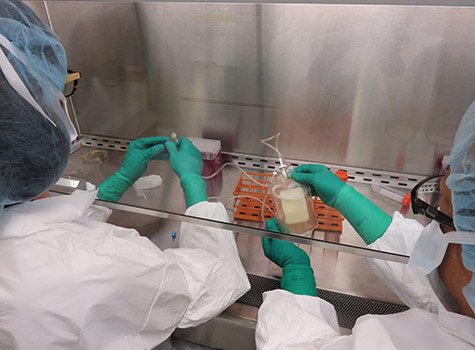The subpoenas are likely to refocus attention on high medicine prices, cutting short any relief from Tuesday’s Democratic presidential debate, when candidates largely bypassed the issue. Biotechnology stocks, which had been in a rout since Hillary Clinton said Sept. 21 that she would seek reforms in the drug industry, had briefly rallied on Wednesday. Much of the criticism in recent weeks has focused on a few companies like Valeant and Turing Pharmaceuticals AG.
Election Year
The price of Valeant’s $3.25 billion in 6.125 percent,
«The price issue has been raised, and for better or worse it’s set the tone for the political rhetoric in election season, and as an investor it’s just hard, maybe impossible, to price that risk," said Matthew Duch, a money manager at Bethesda,
Shares of Valeant yesterday rallied 6.5 percent, the biggest increase this month, after the issue of drug prices commanded less attention than anticipated at the Tuesday debate. Clinton and Bernie Sanders both said they would set themselves apart from the Obama administration by challenging drug companies, but neither expanded on their plans. The Nasdaq Biotechnology Index climbed 0.9 percent the next day.
«The issue was a
Valeant’s Defense
In a letter released Sept. 28, Democrats in the
Valeant said in its Oct. 14 statement that it had responded to a letter from Senator Claire McCaskill, a Missouri Democrat, about Nitropress and Isuprel, explaining the history of the drugs and the reimbursement process in hospital procedures, as well as the rationale for its pricing decisions. The company also said it’s beginning an «outreach to hospitals where the impact of a price change was significantly greater than the average.»
«It appears obvious to me that Valeant has been anything but responsive or transparent — it refused to take any action until served with federal subpoenas, and is still refusing to provide answers to many of the questions I’ve asked," McCaskill said Thursday in an
Political Rhetoric
«The reality is, though, that something had to happen after the political rhetoric," Sam Fazeli, an analyst at Bloomberg Intelligence, said Thursday. «Prosecutors couldn’t have just ignored it.»
Some of the information requested in the subpoenas was linked to services provided to Medicare and Medicaid, the company said. Valeant is reviewing the subpoenas and intends to cooperate with the investigations.
James Margolin, a spokesman for Manhattan
Limited Benefit
This month, Valeant responded to critics of its drug prices in a filing, saying that various researchers were inaccurate and that the company hadn’t benefited as much from
Valeant believes it has operated in a «fully compliant manner," Chief Executive Officer J. Michael Pearson said Wednesday in the statement.
In the letter to Senator McCaskill, Valeant said it had spent $544 million on patient assistance programs in 2014 and total expenditure for 2015 will be more than $630 million. Valeant’s price increases for the two drugs have had limited impact on average hospital costs, the letter said, adding that the average spend per hospital was about $281,000 for Isuprel and $44,000 for Nitropress, compared to the average hospital’s overall expenses of about $150 million a year.
